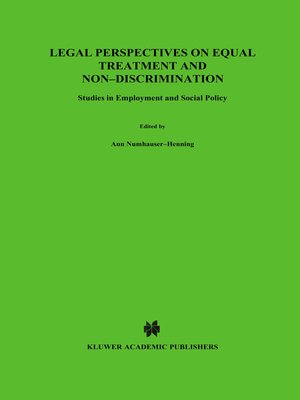Legal Perspectives on Equal Treatment and Non-Discrimination
ebook ∣ Studies in Employment and Social Policy · Studies in Employment and Social Policy Set
By Ann Numhauser-Henning

Sign up to save your library
With an OverDrive account, you can save your favorite libraries for at-a-glance information about availability. Find out more about OverDrive accounts.
Find this title in Libby, the library reading app by OverDrive.



Search for a digital library with this title
Title found at these libraries:
| Library Name | Distance |
|---|---|
| Loading... |
The non-discrimination principle enshrined in the Treaty of Rome has grown, through the case law of the European Court of Justice, into a normative core of the utmost importance for the totality of Community law. In particular, the equal treatment doctrine which developed from the application of non-discrimination in employment continues to challenge the legal structures of labour law and European social integration. This remarkable collection of essays presents the proceedings of a conference held at Lund University in December 2000, sponsored by the Norma Research Programme, which studies normative patterns and their development in the legal regulation of employment, housing, family and social security from a European integration perspective.
Important areas of discussion include the following, among many other topics:







